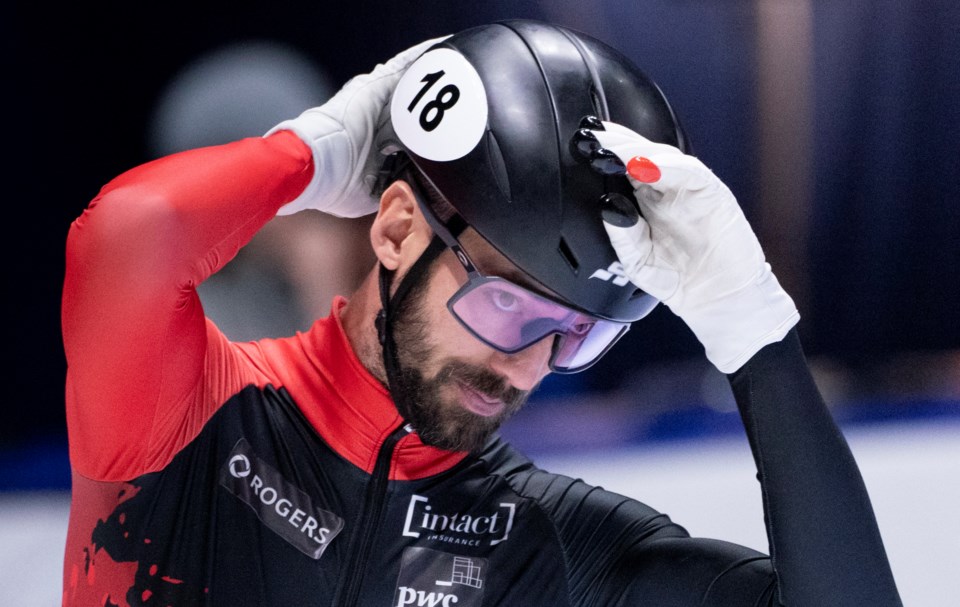BEIJING ŌĆö Charles Hamelin and his Canadian short-track speedskating teammates are adapting new routines in Beijing, thanks to a unique schedule that stretches the competition out over 12 days instead of the more usual four.
Seven of the 10 members of sa╣·╝╩┤½├Į's short-track team are competing at their first Olympics, where they depend on veterans like Hamelin for advice on how to adapt their preparation to compete at their best.
"It's good because it gives us time to breathe, to come back to Earth and put the accent on what's to come," Hamelin said of the schedule, which includes several days off for the short-track skaters.
"Between the race days, we have on-ice training and it's more or less busy, depending on where we are in the Olympic schedule. There are also days off to recover," he said.
The 37-year-old Quebec skater spoke to The Canadian Press to discuss his pre-race routine. Hamelin, who is in his fifth Olympics, stressed the importance of clearing his head after the last training the day before a race.
"We can't see our family and our friends this time, but we can entertain ourselves in the Olympic Village like we usually do," he said.┬Ā
Hamelin said he and his teammates fill the time with group texts, board games, a PlayStation 5 and a Nintendo Switch.┬Ā
"We have lots of stuff to pass the time, which is sometimes too long," he said.┬Ā
Another particularity of Beijing sees the short-track skating take place in the evening, between 7 p.m. and 9:30 p.m., rather than in the afternoon.┬Ā
That means athletes try to sleep and get up at a later time than they're used to in order to have enough energy at race time ŌĆö something Hamelin admits is a challenge for him. The Canadian says he's used to going to bed early, especially since the birth of his daughter, Violette, nearly two years ago
However, "the change in time zone does help to modify the sleep schedule," he said.┬Ā
The morning of their races, the skaters use bikes, stretches and skate movements to warm up. Hamelin says food and drink is important, but he doesn't take a restrictive approach.
"At the buffet, I eat what I want, something I know is good for me," he said. "I also bring lots of snacks."
While some athletes don't like to eat much before races, he believes it's important.┬Ā
The skaters warm up about an hour before the races begin, with each country getting about a 10 minute window.
Hamelin is a music fan, and has a 150-song playlist he chooses from.┬Ā
"It's always the same list, but I don't always listen to the same songs, even if I have favourites I listen to more often," he said.┬Ā
After the warm-up, the athletes sharpen their skates a final time and prepare a race plan with their coach.┬Ā
"We can relax a bit, then we return to the zone where we put on our skates about 10 minutes before the competition," he said. "After that, we're ready for war."
This report by The Canadian Press was first published Feb. 8, 2022.
Alexis B├®langer-Champagne, The Canadian Press

